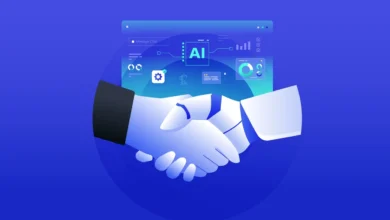Smart Futures: How Technology and Innovation Are Shaping Tomorrow’s World

Rapid advances in technology, imagination, and digital transformation are changing the future. Smart Futures imagines a future in which technology—from artificial intelligence (AI) and automaticity to smart cities and renewable energy—enhances companies, society, and life.
It is very critical as we approach a time of unparalleled change to realize the major trends shaping our future.
Smart Futures’ Foundation: Technology and Innovation
These developments rivet new opportunities.
1. Machine Learning (AI) and Artificial Intelligent
The Smart Futures revolution is based on artificial intelligence and machine learning. Intelligent systems able to analyze large sets of data, make forecasts, and automate difficult chores drive these.
- Virtual assistants and chatbots driven by artificial intelligence greatly improve customer service.
- For better healthcare diagnosis and individualized treatments, machine learning helps
- In sectors such financial, manufacturing, and retail, AI automation raises efficiency.
2. Smart Devices and the Internet of Things
Transport systems based on IoT technology free congestion and improve safety.
3. Blockchain and Decentralized Systems
Digital transactions guaranteed security, openness, and honesty by blockchain technology. It is transforming supply chain management, healthcare, and banking among other businesses.
- Blockchain improves data security in healthcare by mitigating breaches and fraud.
4. Sustainable Energy and Smart Grids
First on A Smart Future’s list of importance is sustainability.
- Smart grids maximize energy distribution and lower waste.
- Businesses and households can conserve electricity using artificial intelligence guided energy management solutions.
Smart FUTURE in several industries
1. Smart Cities: Urban Living Future
Technology helps smart cities to upgrade transit, streets, and public services by means of which they can leverage. Integrating IoT, AI, and big data helps municipalities to live more sustainably and efficiently.
- Smart traffic control helps to lower emissions and traffic congestion.
- Intelligent waste management uses IoT sensors to maximize rubbish collection.
For upcoming urban development, these cities are examples.
2. smart healthcare: Artificial intelligence and telemedicine Revolution
AI driven diagnostics, robotic surgeries, and telemedicine services are all helping healthcare to experience a digital transformation.
- Medical images powered by artificial intelligence help early illness detection.
- Wearable health gadgets monitor vital signs and stop chronic conditions.
- Reducing hospital visits, telemedicine solutions grant people access to other places of healthcare.
3. Smart Education: Digital and Personal Learning
Through artificial intelligence teachers, internet learning portals, and virtual reality (VR) classrooms, technology is transforming education.
- Artificial intelligence guides personalized learning that meets particular student requirements.
- Immersive learning experiences are provided by augmented reality (AR) and virtual reality (VR).
- Blockchain guarantees digital qualifications and certificates in education.
4. Intelligent Business: AI Driven Workplaces and Automation
To boost efficiency and productivity, companies are turning to automation, artificial intelligence analytics, and remote employment possibilities.
- AI driven decision making improves corporate strategies.
- AI chatbots and digital assistants automate customer service.
- Digital cooperation tools like Zoom and Slack along with remote employment change offices.
5. Independent Vehicles and Hyperloop: Smart Transportation
Autonomous cars, high speed rail, and electric mobility are close to revolutionizing the transportation sector.
- Self Driving automobiles relieve traffic congestion and enhance road safety.
- High Speed rail and Hyperloop permit environmentally friendly, faster travel.
- Challenges of creating smart futures
Challenges in Building Smart Futures
1. Risks in cybersecurity.
Stronger encryption, AI driven security, and blockchain could offer some added defense.
2. Issues with privacy
Smart devices compile enormous quantities of individual information.
3. The digital divide
Governments and organizations need to aim for digital inclusiveness.
4. Ethical artificial intelligence and displacement of work
AI automation could replace some employment opportunities. binary assistant
Upskilling staff and generation of fresh AI driven employment possibilities is vital.
The Future of Intelligent Futures: Next?
1. Quantum Computing Advances
Quantum computers will transform data encryption, scientific research, and problem solving.
2. Space exploration and clever settlement
Intelligent futures stretch beyond Earth; possible human colonization of Mars and AI driven space exploration exist.
CONCLUSION
A Smart Future is not far away; it is now opening. Embracing AI, IoT, blockchain, and sustainable energy adds up to a connected, smart, and streamlined future.




